New Year Resolutions may have a bad reputation, but you can’t deny it, they are a good push to reset your system. We have gathered nine hustlers to inspire you. You got this
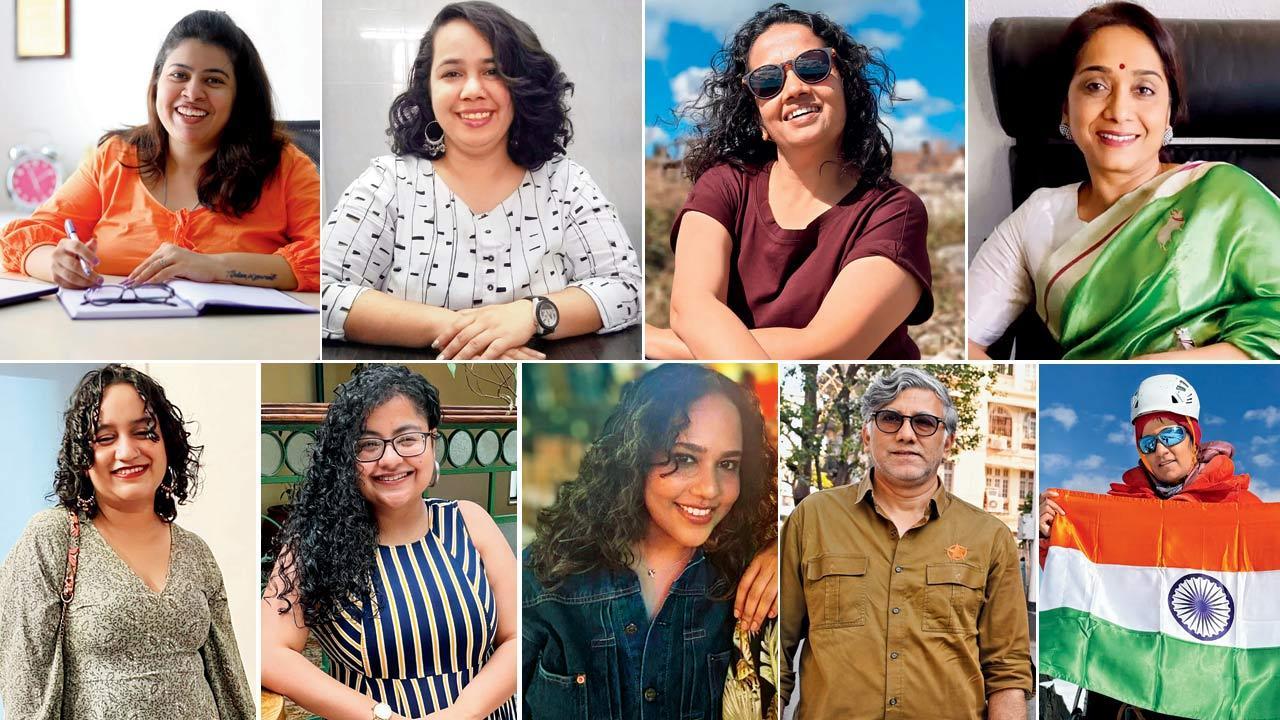
Dharmishtha Dagia: Wrote for 15 minutes every day; Aditi Prabhu: Tried 24 new ingredients; Jaya Bhura: Cut out sugar; Sudha Menon: Became an actor and model; Masha Arabi: Lost 26 kilos; Rohini Dasgupta: Read 100 books; Surekha Rao: Learnt a new language; Sudhakar VR: Trained to host 12 heritage walks; Sneha Baid: Climbed two 6,000-metre mountain peaks
By Debjani Paul, Arpika Bhosale, Mitali Parekh, Spandana Bhura, Aastha Atray Banan, Junisha Dama
ADVERTISEMENT
‘I feel the possibilities in life opening up now’
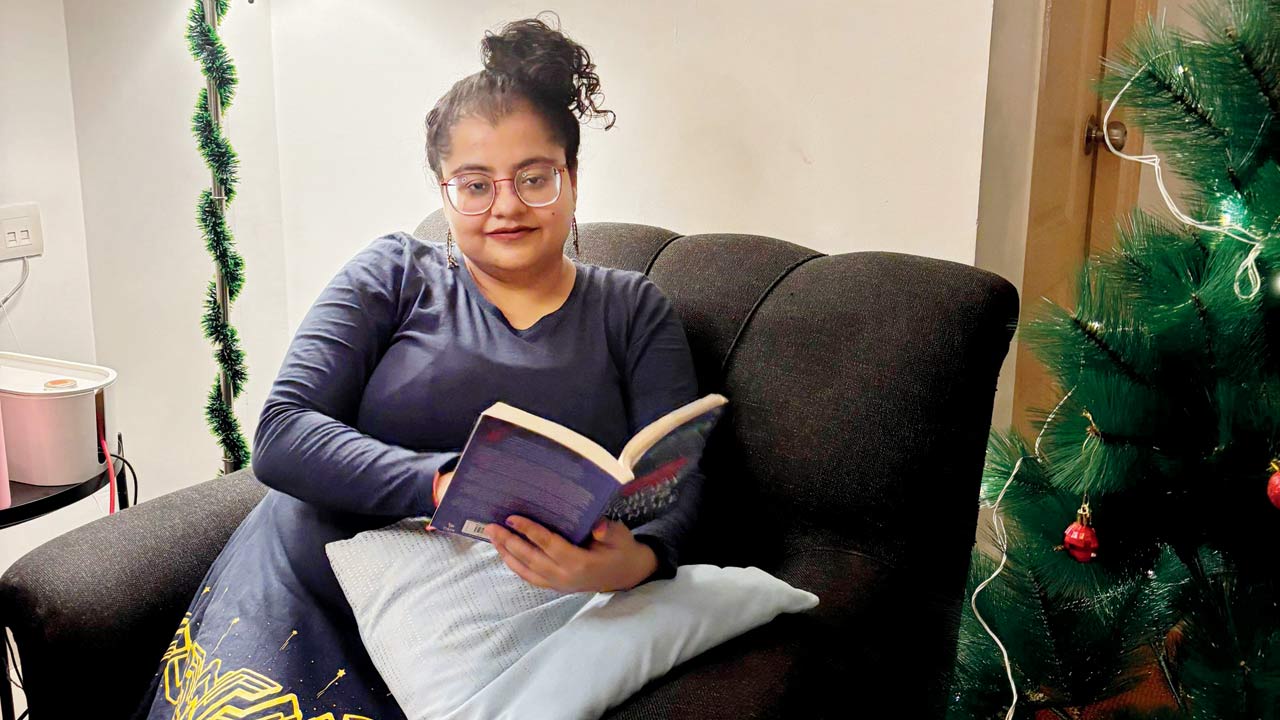
Rohini Dasgupta
35, Project Manager at TCS
Resolution: To uninstall all social media and OTT apps and read 100 books over the year
At dinner parties, when everyone else talks about what show they are currently bingeing on, Rohini Dasgupta shares what book she’s reading at the moment. The usual refrain of “Oh, I wish I’d read more, I just never seem to have the time” passes through the room. It’s when Dasgupta reveals that she’s on a mission to read 100 books this year that jaws drop across the party.
Is that even possible, you must be wondering. When we speak to Dasgupta a day after Christmas, she’s already on her 100th book (We Solve Murders by Richard Osman), and well on her way to meeting her goal this week.

Like every other person who reacts in amazement on hearing about her goal, we too ask: Why 100 books?
“When I was a child, this was the pace at which I read—two books a week, easily,” she tells us, “Then I went to college, and the habit fell away because there were so many things going on.” As a project manager at TCS with work often running into nine-hour days, it got even harder to get back to reading.
In 2016, she made a conscious decision to try harder. “But I noticed that I didn’t have the stamina for reading anymore,” recalls Dasgupta, “It felt like I was walking up the stairs after being completely unfit for years. I was devastated because I love reading so much.”
There were also the distractions of social media and OTT shows. “I would fall back into the same old pattern of returning home from work and watching a show to unwind. Except it’s never one episode; I’ll still be watching it at 3 am. I wasn’t being intentional with my time,” she says.
The key, she says, was to start small. “I wanted to get to the point where reading became my default choice for recreation but I had to slowly increase my capacity to read for longer periods and not get distracted. In 2018, I read seven books. In 2023, I hit 60. I slowly built up my reading muscle. Then this year, I wanted to see if I could get back to my childhood level,” she says.
One of the first things she did was to uninstall all social media and OTT apps to stop the mindless doom-scrolling and binge-watching. The other decision she made was not to have too many rules. She doesn’t restrict herself to just one book at a time. “On days I’m tired and can’t absorb anything, I turn to lighter reads. I usually have at least two books on at the same time—an audiobook that I listen to during chores and my morning walk, and a paperback or e-book that I read at the end of the day in bed or when I go to parks,” she says, adding that audiobooks had been a game-changer for her, helping her make use of short windows of free time.
“I don’t push myself to finish a book if I’m not in the mood for it; I put it aside for later. You wouldn’t watch a show if you weren’t in the mood for it, you’d just switch to something else without judgment, right? Take the judgment out of it. If you’ve read for 15 minutes today, don’t think of it as ‘just 15 minutes’, think of it like building a streak. Try reading a little longer the next day, and so on,” she adds.
Next year, Dasgupta has decided to halve her target to 50 books, but be more mindful about her selection. Ever the project manager, she’s even drawn up a spreadsheet of how many books will be fiction vs non-fiction, light vs heavy reads. “The one mistake I made initially was to get too ambitious, picking too many translated works or heavy reads. But I realised I read more when I picked things I liked—thrillers and detective fiction. Next year, I have planned a balance of genres,” she says.
Now that she’s so close to hitting her goal, it’s changed her perspective on life altogether, she says. “I think the biggest thing it’s done for me is that I now believe I can do a lot of the things that I didn’t think I could before. Do I not have the time, or am I just not using it effectively? I may not ultimately end up doing everything I have wanted to, but I really feel the possibilities in life opening up.”
Target for 2025
Easy reads: 10
Hard reads: 5
Fiction: 10
Non-fiction: 10
New discoveries: 10
Repeat reads: 5
‘The cancer scare was a big jolt for me’
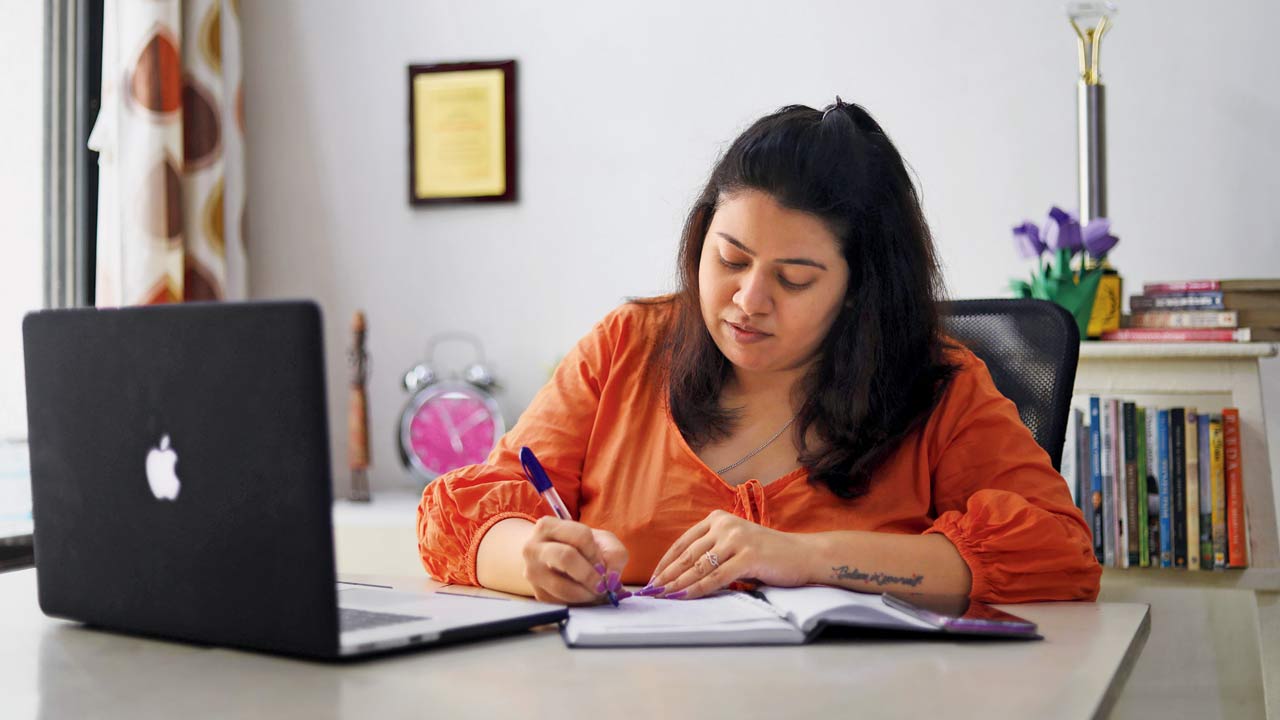 Dharmishtha Dagia’s diary has been her constant companion and she makes sure to write at least a line every day—on good days and bad
Dharmishtha Dagia’s diary has been her constant companion and she makes sure to write at least a line every day—on good days and bad
Dharmishtha Dagia
36, celebrity manager-freelance writer
Resolution: To write for a minimum of 15 minutes every day and work on her book
Dharmishtha Dagia keeps her cards close to her chest, and she did just that when she went for surgery back in August 2023. “Only my sister, who lives abroad, knew about it,” says Dagia.
The dual purpose surgery was to not just extract a cyst in the arm that was causing Dagia tremendous pain, also to biopsy it to see if she had the dreaded “Big C”.
“I didn’t want it to be a big fuss and wanted to just see what it was first,” she adds. It may sound like Dagia took it all in a stoic manner, but merely facing the prospect of cancer had rid her of any notion she may have had of having the luxury of time. Even when the biopsy results declared that the cyst was benign and that she was cancer-free, the Kandivli resident held on to the clarity that the health scare had given her.
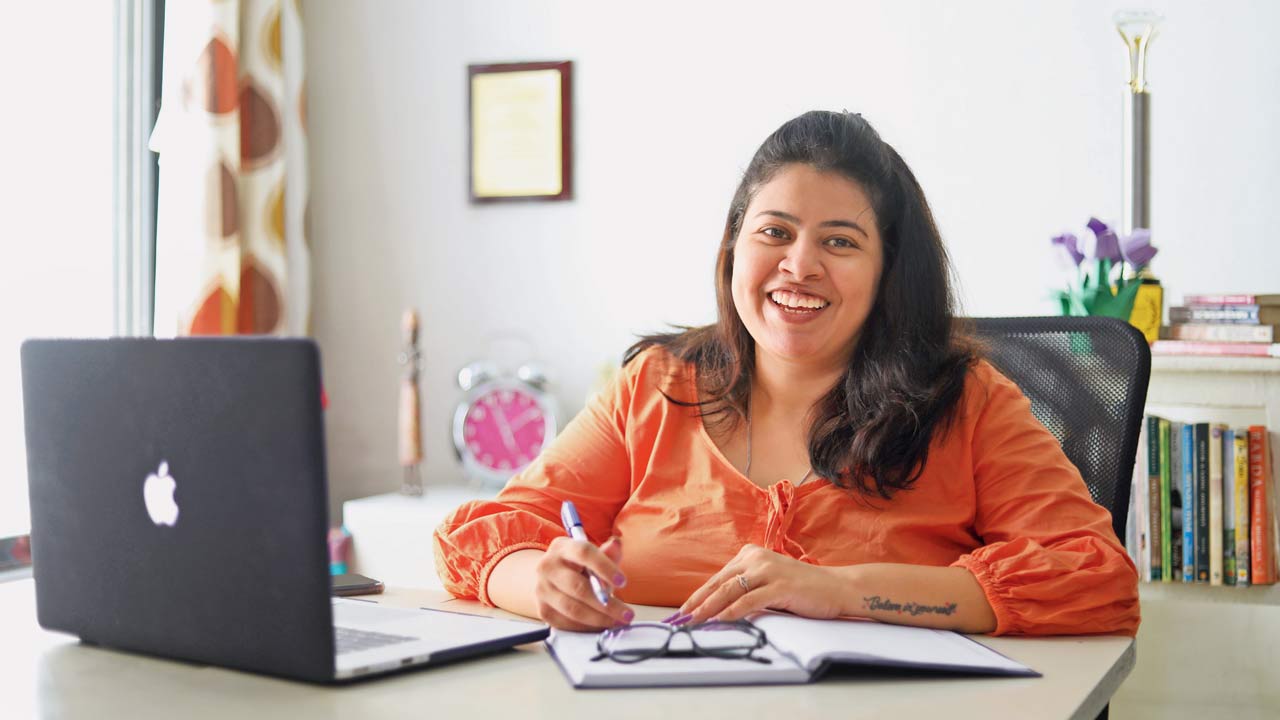
“After that, I was pickier about who I would work with, she says, “Unless they would pay half the fees [at the start of the project], I wouldn’t take them on as clients. I would prefer to read or watch Harry Potter,” she quips. Being more selective also led to Dagia getting genuine clients, and led to one of her biggest projects—managing a few clients for Ambani’s pre-wedding and wedding celebrations.
It also freed up her mind, as well as her schedule, to finally get to writing the book that she had put in the cold storage for years—always writing a bit and then shelving it for months at a time.
“Writing has always been something I wanted to do. But you tell yourself that you will do it when the time is right, or that you will do it well when you have time,” she says.
Dagia took the pressure off by instead resolving to write at least a little bit every day—on good days and bad—no matter what the quality of the output is. “In the past year, I made sure to write every day. It might be for a few hours, just a paragraph or sometimes even just a line, but my diary has been my constant companion,” she says. Putting pen to paper has now become a constant in her day.
“Even though I have to sometimes rewrite or reframe what I might have quickly scribbled on a day I wasn’t in the mood to do much, writing every day has helped me keep my end goal on track,” she says, adding that she is halfway through her book.
The next goal is to hand in a decent manuscript to her publisher by September 2025. “Either September because it’s my birth month, or then October, which is when my mom was born, as well as the month I launched my own agency,” she says.
Talking about how her close call with cancer shaped her perspective, “It was one of those moments, you know? Things could have gone either way for me. It was a big jolt for me,” she says, adding that it pushed her to stop putting things off for later. “Even though I am ambitious and a go-getter, life can slow down the best of us.”
Her health scare also pushed her to pursue her other interest—dance. She now dances at least 15 minutes every day, no matter what. “Even though dance is just as much of a creative process as writing, I do make sure that I do 15 minutes of it every day as well,” she says, “Dance is about both your mind and body. These two [writing and dancing] have become a part of my everyday life,” she adds.
When we ask Dagia what her book is about, the writer in her peeks out. “I can’t tell you now. Give me some time,” she giggles. We press on. “Soon,” she says, now with all-out laughter.
Walk the walk
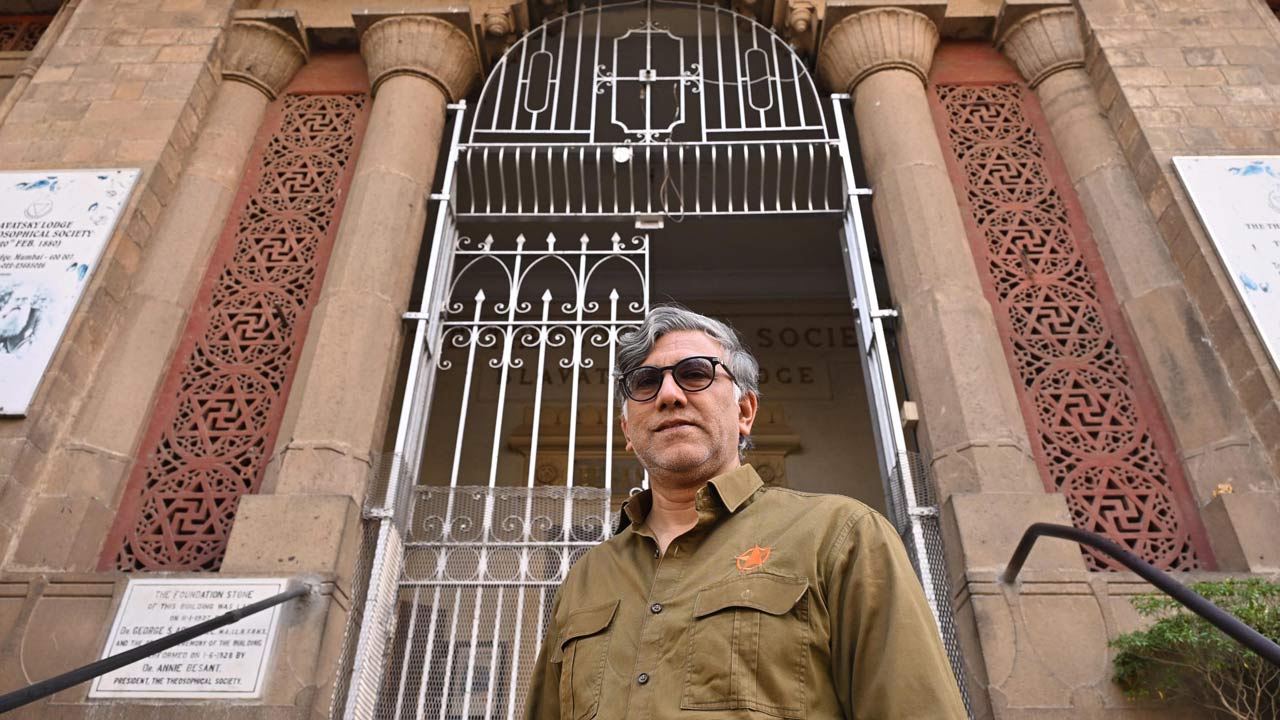 Sudhakar VR outside The Blavatsky Lodge of the Theosophical Society on Charni Road, which is part of the Wonder Women walk. Pic/Atul Kamble
Sudhakar VR outside The Blavatsky Lodge of the Theosophical Society on Charni Road, which is part of the Wonder Women walk. Pic/Atul Kamble
Sudhakar VR
53, Team Lead (Analytics),
Digital Business, BPCL
Resolution: To train to host two to three heritage walks in 2024; he ended up overshooting his target and did 12
On his new commute from Chembur to Cuffe Parade, Sudhakar VR would pass Horniman Circle, the RBI building and wanted to know more about them. He moved from Kolkata to Mumbai in 2018 and attended guided walks to learn more about his home city. At the Kala Ghoda Arts Festival, he chanced upon a book about the Fort region and saw that one of the co-authors was Bharat Gothoskar of the Khaki Foundation. KHAKI is an acronym for Keeping Heritage Alive and Kicking in India.
Ten quick steps, and Sudhakar, who works in the Analytics department of Bharat Petroleum, learned of Khaki’s Ambassador of Mumbai programme where you train for six months to host walks yourself for Khaki. “I started with their most popular walk, Castle2Gateway,” says the 53-year-old, “and I thought I could do this a few times a month. The walk lasts two-and-a-half hours, and with my commute, it took up five hours of my weekends till lunchtime.”
Simultaneously, he attended other walks and was entranced by each one. “I enjoy researching history and storytelling; disseminating information excites me. There is a satisfaction in telling the stories [of little-known heroes], and you can see that people are energised by it.”
For 2024, Sudhakar set a target of qualifying to lead two or three walks: the Wonder Women walk, which becomes the Durgas of Mumbai walk during Dussehra; the Girgaon Ganpati Walk; and the Azad Hind walk. The resolution was to do two or three of these a month on weekends. However, by the end of the year, he had qualified for 12 walks, including ones adapted for schoolchildren, such as Freedom4Kids (Azad Hind walk) and Fort4Kids.
Then there are the culture-centric ones he added to his kitty, such as Girgaon Ganesh, which threads through Girgaon, and Mumbai Muharram, which goes through Mohammed Ali Road and Dongri. “The latter is a night walk, and for it, I read a lot of Islamic literature and what happened after the Prophet’s death.” There’s also the 26/11 homage walk, which was preluded by familiarity with the book The Siege: The Attack on the Taj, which detailed the terror attack on the Taj Mahal hotel in 2008.
“I spend most of my evenings reading,” he says, “I don’t watch TV anymore.”
For each route, he underwent training for a month to a month-and-a-half; and finally hosted seven to eight walks a week, sometimes doing two on the same day. In September, Sudhakar conducted 14 walks.
“There’s great satisfaction in conducting the children’s variation of the walk; we have to learn a different methodology of instruction and to manage them,” he says.
For Durgas of Mumbai/Wonder Women, he learned about the women who shaped the city such as Helena Blavatsky, founder of the Theosophical society after whom the Charni Road lodge is named; and about the several meetings related to the nationalist movement held there. The walk then introduces patrons to Rukmini Devi Arundale, who brought the classical dance form Bharatnatyam to the fore; Sumati Morarjee, the first woman CEO of an Indian company; and Dr Rukhmabai Raut, who revolutionised marriage laws that resulted in ending child marriages in India.
“You get to learn about amazing connections,” he says, “such as the 12-inch disc on board NASA’s Voyager 1, launched into space in 1977, called Sounds of Earth. On it is a piece of Indian music recorded at Blavatsky Lodge.” It still floats in space.
In 2025, he wishes to contribute more by designing a new walk around Fort, covering new things.
Not a sweet 2024
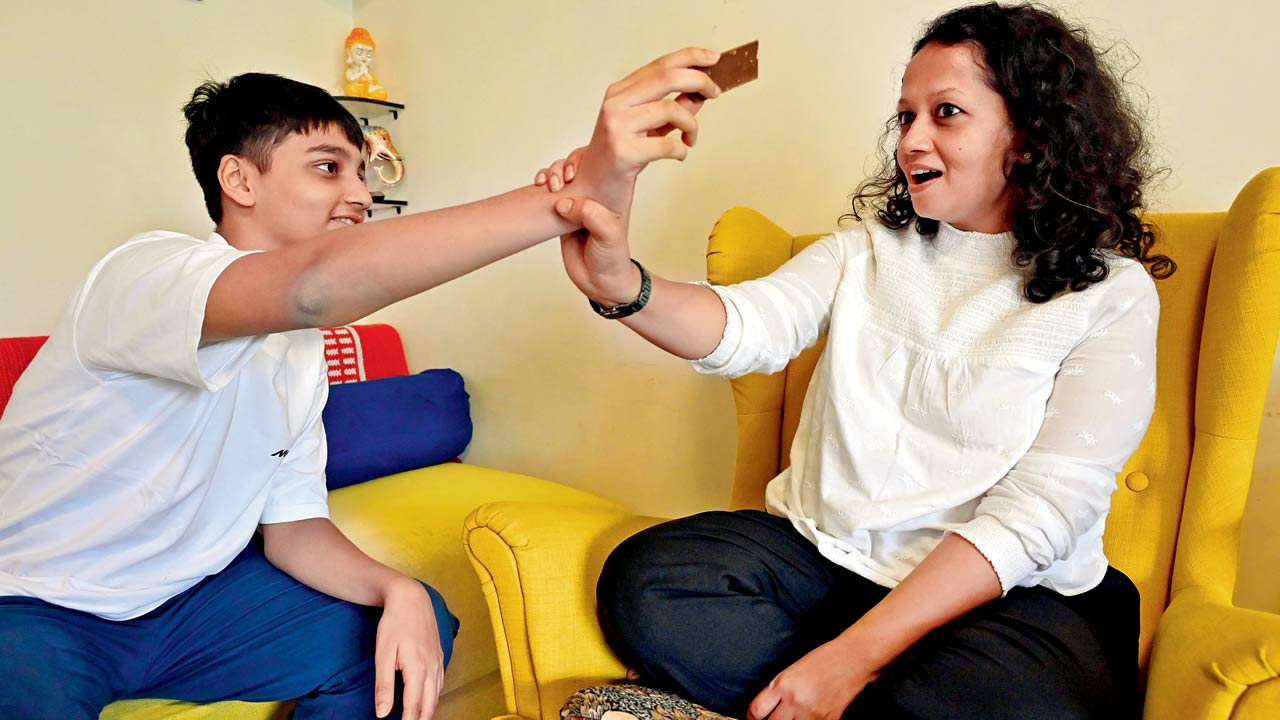 Jaya Bhura has made it a habit to read the ingredients of packaged foods, and avoid completely if they contain even a bit of sugar Pic/Anurag Ahire
Jaya Bhura has made it a habit to read the ingredients of packaged foods, and avoid completely if they contain even a bit of sugar Pic/Anurag Ahire
Jaya Bhura
45, Founder, Chakraview Solutions
Resolution: To cut out all forms of sugar
At the beginning of 2024, Jaya Bhura made a decision that would redefine her approach to health and well-being. “I resolved to quit sugar entirely—this meant avoiding it in all forms, including mithai, chocolates, aerated drinks, and even processed foods,” shares Bhura, an entrepreneur and co-founder of Chakraview Solutions. This resolution was not just about cutting calories; it was a statement of intent and a commitment to taking control of her health during a transformative phase of life.
Bhura’s professional life is a dynamic one. “Chakraview is a mobile phone application designed to enhance the safety and security of the school bus commute for children,” says the 45-year-old. “The app tracks school buses, helps with attendance management, and communication to improve student safety, streamline bus operations, and optimise bus route management with just a few taps.” As co-founder, the Bandra-resident oversees customer service, logistics, and operations for
the app, which now supports over 100 schools in Mumbai and Pune, and is trusted by more than one lakh parents.
This rapid growth of her start-up, established in 2016, has demanded Bhura’s peak performance every day, which emphasised the importance of staying mentally and physically fit. “Like almost every woman, I juggle many roles—I am an entrepreneur, mother of two, nature enthusiast, marathon runner, a bibliophile and so much more. As a 45-year-old in perimenopause, I understood the necessity of prioritising my health and taking the utmost care of my body,” she reflects.
Perimenopause, the transition to menopause, is marked by irregular periods, heat flashes, sleep disturbances, and other symptoms as the body prepares to cease menstruation. These can significantly affect mental and physical well-being, making self-care and support systems all the more vital.
“It’s easy to feel overwhelmed, but I took it as an opportunity to reconnect with myself,” she says. “At first, it was primarily about maintaining my weight. Now that I’ve made the shift, it’s about so much more than just numbers on a scale. I feel more energetic, sleep better, and am learning to rely on healthier forms of dopamine,” laughs Bhura.
The first five months were a struggle. For every week she stuck to the resolution, there would be another where she’d falter. “It felt like a constant cycle of two steps forward and one step back,” she admits candidly. The breakthrough came in July when she involved her family. “Announcing my resolution was a game-changer,” she says. Bhura also made it a habit to carefully read the ingredients on any packaged food, and to avoid it completely if it contains even a trace of sugar. Her commitment hasn’t gone unnoticed. A recent visit to her gynaecologist yielded enthusiastic praise. “She gave me a 10/10 for cutting out sugar and prioritising my health by working out regularly!” Bhura beams.
Bhura’s journey has been shaped by the weight of opinions. “After my son was born, 15 years ago, I gained a significant amount of weight, and people wouldn’t let me forget it,” Bhura says with a sigh. And when she managed to lose over 25 kgs within a year with yoga, people asked if she had been ill!
This rollercoaster of unsolicited comments taught her an important lesson: No matter what you do, people will always have something to say, and it’s rarely positive. “Even now, they’re quick to respond with, ‘Arey yaar, ek mithai kha lo, kuch nahi hoga.’”
Festivals, in particular, posed challenges initially. “I was constantly tempted, but I don’t even get cravings now. While it might not make me the most pleasant person in the room, people eventually back off.”
To her, the bottom line is about reclaiming agency over body and mind. As she puts it, it’s about, “Showing up as the best version of myself, for me.”
Hi to Hola
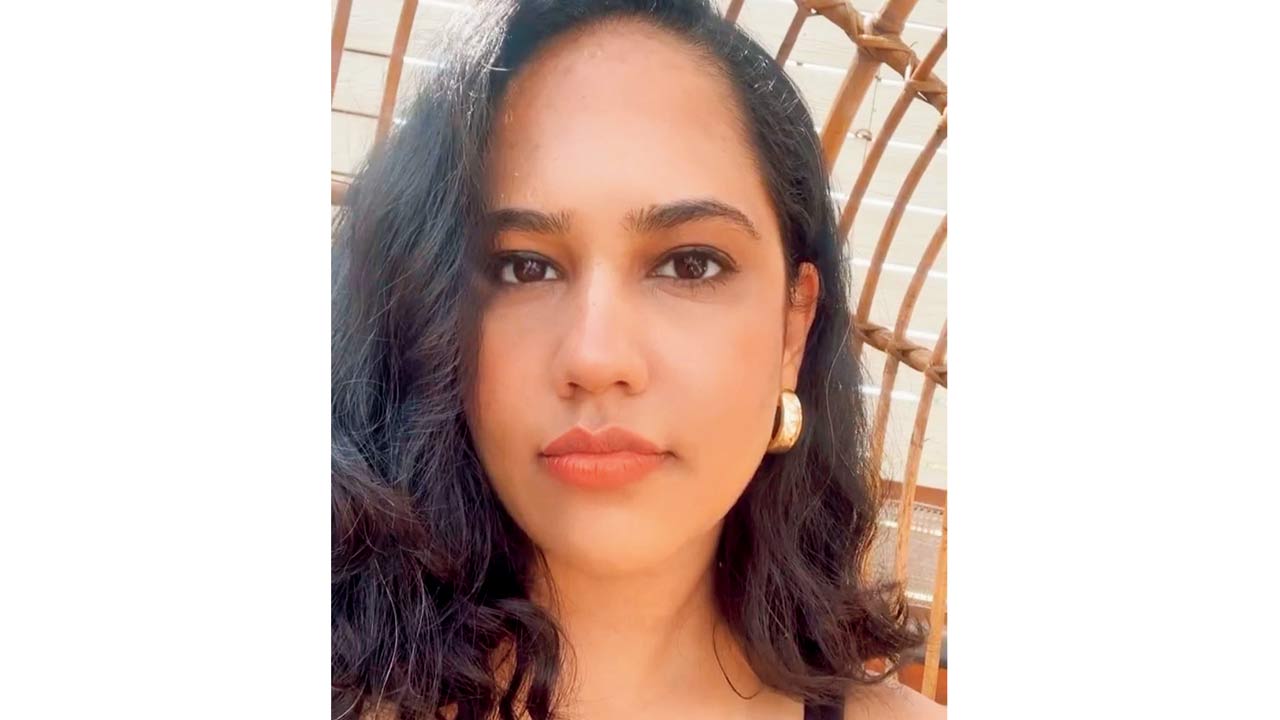
Surekha Rao
31, Founder of Scene Studio
Resolution: To learn a new language
In early 2024, Surekha Rao, founder of Scene Studio, received a photo from her friend. The picture showed an image of Spain pinned to a vision board, and her message indicated that she was moving away. Rao asked how the photo was related, and that’s when she learnt how to chalk out a vision board.
So, in March 2024, later than many others, Rao sat down to list things for her vision board. One of them was to learn a new language. “I don’t shun any opportunity to upgrade myself. So, I thought, why not try out a vision board? At the very least, I will have a pretty collage even if nothing materialises,” says Rao. The process of selecting what to put on her vision board was slow. Rao says that for any vision board, one needs to choose practical and easily achievable goals. “Your mindset should be that you have already achieved it,” she says, adding, “I put down swimming, a few financial goals, and of course, learning a new language.” For Rao, picking Spanish to be the language to learn was a no-brainer.
Ever since Rao was in college, Spain and its culture fascinated her. It also helped that certain words were similar to English, and the language was easy to catch. But Rao never formally learnt the language. “I always wanted to be a polyglot. I know it’s not a big deal in India as most of us know at least three languages. But I wanted to upgrade myself,” she says. At 21, she tried learning German, but the language did not hold her attention. Learning Spanish instead, was on Rao’s mind, but with work and life, she had never got time.
That was until she put it down on her vision board, and began working towards it. Learning Spanish would mean that Rao would be able to interact with Latin culture better, watch Spanish movies without subtitles, and gain personal fulfilment. So, she downloaded the Duolingo app and began practising the language. It went smoothly for some time, until it didn’t. After a bit of start and stop, she gradually became more regular with her learning, spending at least a few minutes with the language every day before bed. “Technology has made things easier, and it’s such a beautiful thing. If people want to upskill, technology makes it easy to be a better version of yourself,” she says. Through regular lessons on the Duolingo app, Rao has completed her A Levels in Spanish. She’s now looking at continuing her streak to get to the B Levels next year.
Among other things she had put down on her vision board in March, Rao has successfully achieved them all. She now plans to make a personal and a professional vision board for 2025. Speaking on how she managed to stay motivated through the course, she says, “Doing something for 30-45 minutes daily is impractical for me as work keeps me busy. So, studying the language for a few minutes each day helps,” and advises, “You have to be pragmatic. Don’t set too high a goal and don’t look at it. Reach the half-way point first, and then keep at it.”
24 new flavours in ’24
 Aditi Prabhu focused on local and seasonal ingredients that she explored either by cooking with them, fermenting them, or at local restaurants and during her travels
Aditi Prabhu focused on local and seasonal ingredients that she explored either by cooking with them, fermenting them, or at local restaurants and during her travels
Aditi Prabhu
36, clinical nutritionist
Resolution: To try 24 new ingredients
For the last decade, each year, Aditi Prabhu has set five goals. These cover various aspects of her life, including upskilling, and she also integrates something that will help her with business. In 2024, one of the five goals included trying 24 new ingredients.
As a clinical nutritionist and food enthusiast, Prabhu was excited to see where this would take her. “One thing I’ve seen in the last 15 years of my practice is that even though there is a lot of globalisation and we have easy access to a lot of ingredients, our plates have become smaller and smaller. The younger generation is less aware of what is local, and what is seasonal,” she says, adding, “A lot of them even struggle with global ingredients. Everybody has read about them, but they don’t know how to use them. So I chose this goal from a professional and a personal perspective. As it was 2024, I chose 24 ingredients that I wanted to explore.”
The idea, at its core, was simple: Try something you have never tried before. Naturally, her nutritionist instincts kicked in, and she decided to steer herself in a healthy direction, with seasonal or local produce. As she was keen on a few global ingredients, those were added to the mix too. But she says she did not set rules for how she would try them out. “Some of them I tried out at restaurants or through colleagues or friends; so it’s a mix,” she says.
Through the course of the year, Prabhu tried some ingredients through her travels. She ate scampi and lobster at seafood restaurants in Mumbai. A friend of hers brought her some white chillies from Nepal, while Prabhu sought out the habanero chilli, shishito pepper, and a few other types of peppers from hydroponic farms for her experiments with fermentation at home. Among the many local ingredients, she tried out black desi carrots, as well as a variety of different lemons grown across India, including a seedless one. And, to make the mix interesting, she took to a few trending ingredients too, like gochujang (Korean red chilli paste, and Japanese kewpie mayo (made with egg yolks), among others.
Rather than a pre-planned list, Prabhu explored ingredients as she came across them, using her expertise as a nutritionist to study how best to use them. “Nobody knew about this goal except my siblings. When I look back now, there are ingredients which I came across because I was travelling,” she says.
“Some colleagues found out I was travelling and they gave me a list of things I needed to try. I had friends and clients who brought back ingredients from their travels for me to try because they know I enjoy learning about new flavours and writing about it. Besides that, I had Instagram followers who, when they saw a new ingredient at the market, would click a picture and send it across because I write about ingredients,” Prabhu adds.
Each time she came across something she had not tried before, she would find out its botanical name, read research papers on the ingredient, and figure out how to incorporate it in a client’s diet and in what proportion, quantity, and preparation style.
But how does one even set such a goal and stay the course to achieving it? Prabhu has some advice for the kind of mindset shift one needs to practise. “I don’t call them resolutions because somehow when we think about resolutions, we always know they’re going to break. I always say set goals,” she says.
Prabhu says it helps to look at all domains of life, and to only set three to five things that one wants to work on throughout the year. Next, these goals have to be categorised as short-term, medium-term, and long-term goals. Following this method has helped her stay motivated to check off all that she has set out to do for the last decade.
Flavours of the year
1. Scampi
2. Lobster
3. White chillies
4. Habanero
5. Black carrots
6. Kavla bhaji
7. White bitter gourd
8. Red potatoes
9. Muskmelon Madhumati
10. Koorka
(Chinese potato)
11. Serrano chillies
12. Caperino peppers
13. Shishito peppers
14. Red rice vinegar
15. Greek mustard
16. Gochujang
17. Citron
18. Yak cheese
19. White fungus
20. Indian
palm dates
21. Ponnangani keerai
22. Tilapia fish
23. Macademia nuts
24. Kewpie mayo
Facing the fat
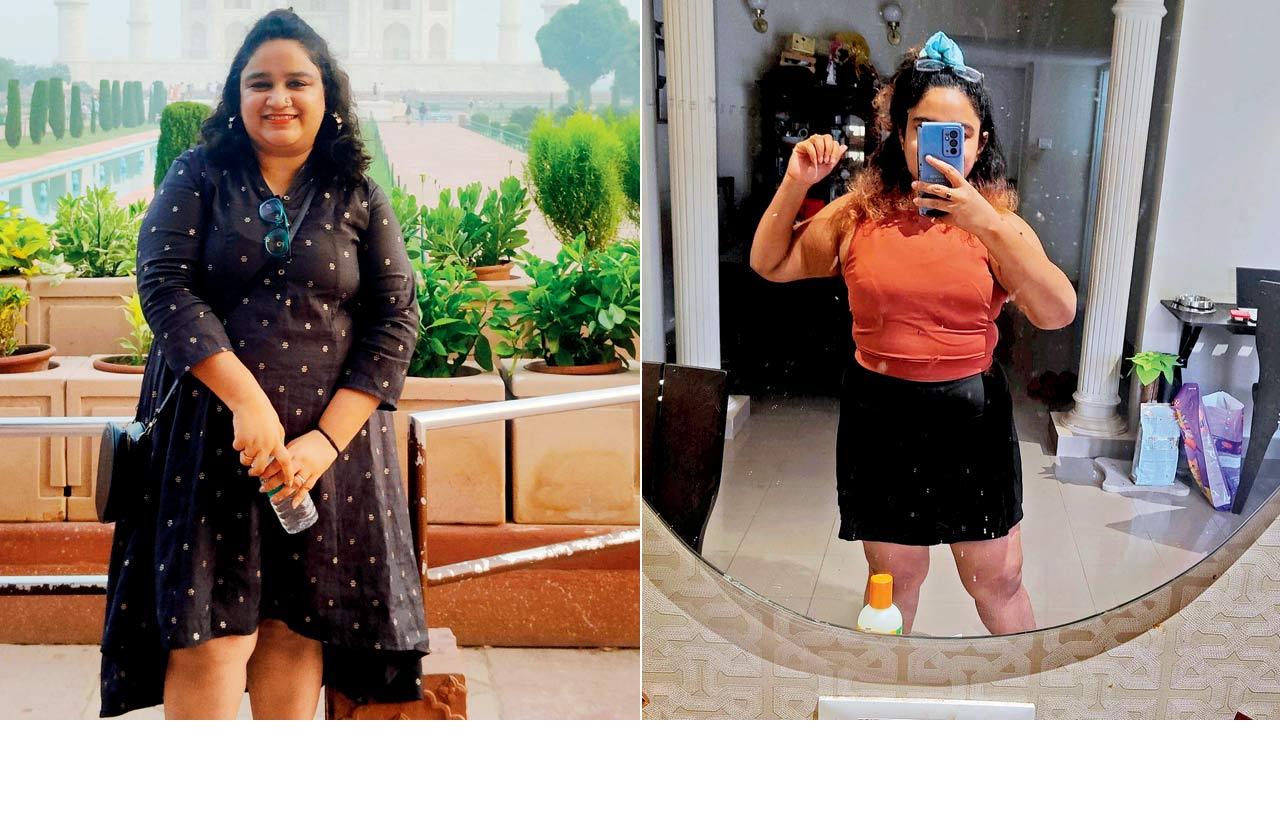 Before and After
Before and After
Masha Arabi
30, Artist Manager
Resolution: To lose 25 kilos in a year
My resolution was to reduce my health issues, and that was connected to my weight, so I needed to lose 25 kilos in a year. Basically, I wanted to go from an XL to a Small size. I just wanted to be healthy—and it was a comfortable target—as it was around two kilograms a month,” says artist manager Masha Arabi, who divides her time between Mumbai and Mangaluru.
The moment of reckoning started the year before for Arabi, who moved back to Mangaluru after quitting her job, as her stress levels were skyrocketing, which in turn was leading to weight gain.
“I couldn’t function mentally, emotionally or physically. I thought it would be better if I shifted, but then my dad passed away in March. I went for a workout the next day after my dad’s funeral, as it was an escape, but I was barely surviving at that time.” So she was going for a workout, but also binge-eating… “That went on for a year, because I was concentrating on surviving.”
In December 2023, Arabi decided that she had made peace with what had happened, and it was time to bring the focus back on her. “I decided I can’t keep gaining and losing, as that also affects mental peace. I would keep a comfortable target that I could hit every month. I would keep it at four kgs, and at least lose two kgs. I also stopped feeling guilty if I ate something calorie-rich once in a while. I knew this was a long-term thing, and I couldn’t beat myself up, as that wasn’t healthy. I made sure that 90 per cent of my meals are healthy,” she says.
But the most important factor that Arabi says has helped her is having an accountability partner. “My friend and I would text each other ‘Hey, we can get through this’, and it worked. Also, my workout of choice was dancing, so that helped, as it never felt like a workout.”
Her trainer Yaaz came up with an interesting idea. He would give her time limits. Initially, she would do 50 burpees in an hour, then she ramped that up to 100 burpees in 50 minutes, and now 100 burpees in 10 minutes. “I still hate burpees, but my stamina and resilience has increased.”
Arabi has clear learnings from her year, and self-acceptance has been a big part of that. “My validation used to be tied to the way I look. Now, I am not as thin as I once was, but I am more comfortable with my body. I like my belly. Also, I have learned consistency, so this is a way of life now.”
And that’s why right now, Arabi is at a good place. “I am happier and more disciplined. Even if I go for a vacation, I can come back and get back on track. My mind has become stronger. For me, the fact that I have managed to make it a long-term habit, is the best takeaway. I am very grateful I got to do this. In fact, this keeps me going even when nothing else is going good.”
‘It’s all about baby steps’
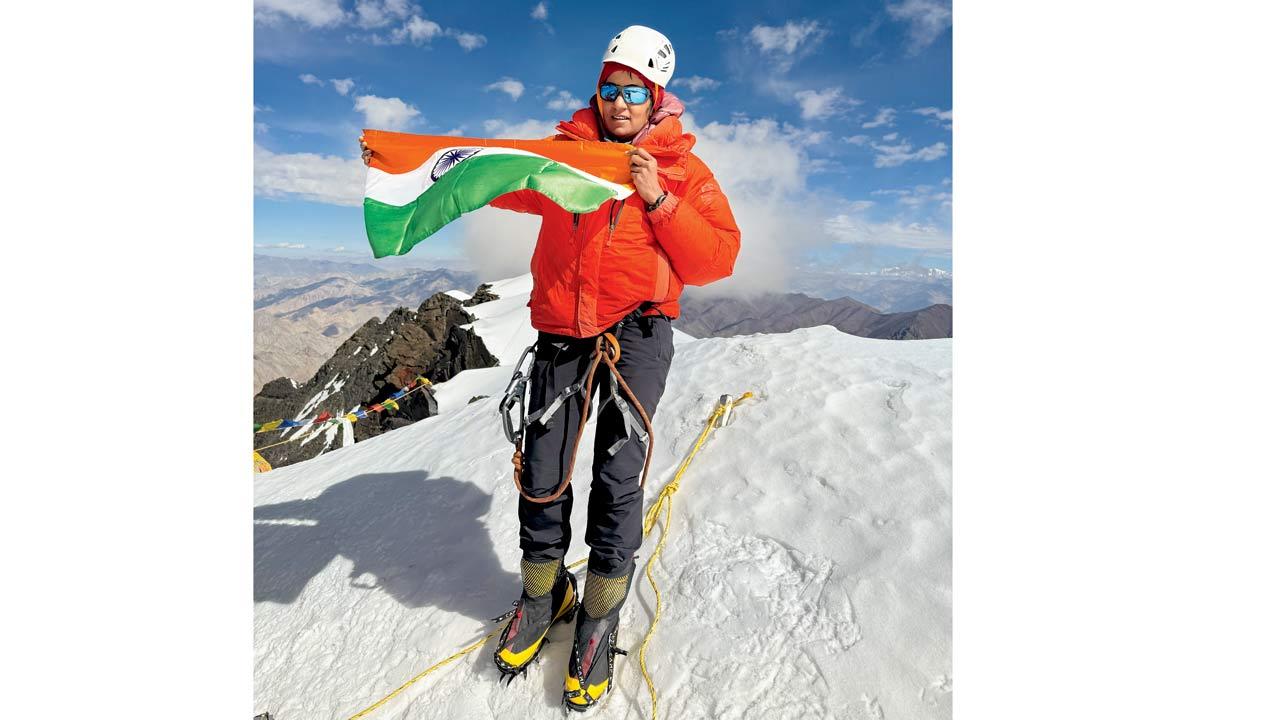
Sneha Baid
40, Tech Programme Manager (software)
Resolution: To climb a 6,000-metre mountain peak
For Sneha Baid, 2024 was a landmark year. She was turning 40 and wanted to do something “big” to mark it. She had tried climbing mountains in Ladakh in 2023, and had to turn back because of unfavourable weather conditions. This year, she ended up setting a record, and became the first, and fastest, Indian civilian woman to climb KY2 (Kang Yatse 1 at 6,400 metres and 2 at 6,250 metres) in Ladakh back to back. “I wasn’t even aiming for that, it just happened.”
Her preparation has been all about living a healthy life every day. Baid has fibroids, and has lived with inflammation all her life. To manage those conditions as well, she works out regularly—she gets up at 5 am, cycles, runs and hits the gym. She gets back and then it’s off to work for the day.
“In 2023, I also did a basic mountaineering course. It gave me a fair idea of what I needed. For the climbing, you need a lot of physical and mental endurance. I found out my shortcomings, and what I needed to work on. I needed to do the peaks to really put my knowledge to test.”
Post the feat, Baid has a confidence that’s enviable. “There are two things that happen. Firstly, it gives one patience. I turned back last time, as the mountain is a very powerful force. You need to know when to turn back. I wasn’t going to be dejected if I had to turn back,” she says, adding, “Secondly, the only limit you set for yourself is in your head. Once you break those limits, you find out things about yourself that you never knew. You realise you were boxing yourself in.”
For now, she is readying for her next climb—one in the winters, and then move on to a 7,000-metre peak.
She has a word of advice for anyone who wants to make a resolution but remains sceptical about sticking to it: “Some days, you can’t even get up out of bed. Every day is a fight. It’s all about baby steps—one step at a time. Mountains teach you to plan ahead, but focus on the next step only. Set achievable goals, and feel good about yourself. Don’t ever beat yourself up. If you keep at it, it will work out.”
‘Mein actor banna chahti hu’
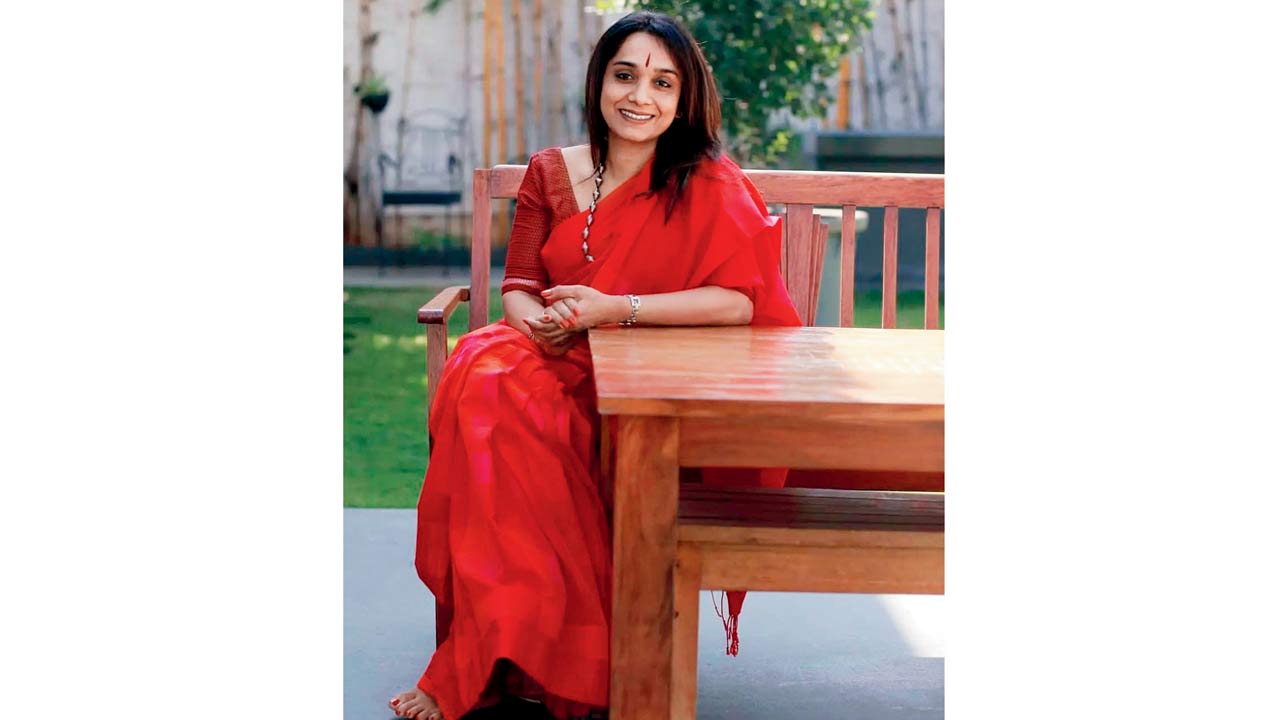 Consistent effort ensured Sudha Menon bagged multiple ad shoots, as well as a role in the webseries Poacher. In the coming year, she intends to put writing on hold so she can focus on acting
Consistent effort ensured Sudha Menon bagged multiple ad shoots, as well as a role in the webseries Poacher. In the coming year, she intends to put writing on hold so she can focus on acting
Sudha Menon
58, Author
Resolution: To focus on her acting and modelling career
After a career in journalism spanning over two decades and authoring six books, Sudha Menon decided to give modelling and acting a try. She first landed a few gigs that she took up along with her writing career. But it wasn’t until the end of 2023 that Menon decided that in 2024 she would focus on her acting career more diligently.
That decision resulted in Menon spending 2024 on set after having bagged ads for brands like Malabar Gold, Joyallukkas, Reliance Jewels, ICICI, Mercedes, and a role in the award-winning webseries, Poacher. She has worked with the likes of Anand Mahadevan, Paresh Rawal, Pankaj Tripathi, Junior NTR, and Ram Charan. A few days before speaking to Sunday mid-day, Menon had just wrapped a shoot with her all-time favourite hero Amitabh Bachchan. “After having spent 24 years asking people questions [as a journalist] and in the communication business, it was very challenging for me to be on the other side of it where I had to communicate. I can sleepwalk through writing, but communicating on set in front of a 100 people is different. It is hugely challenging to make yourself vulnerable by putting your expressions and your feelings out there in front of so many people,” says Menon speaking about her experience so far.
But Menon’s mind was made up—she wanted to pursue a career in a competitive industry and be in front of the camera. “I did most things to make an impact. I signed up for workshops, and I auditioned for whatever came my way. My mother keeps ill, and my sister and I are her caregivers. So, at times, I have to say no to a lot of work. That’s why I want to take up every chance I can get,” she says. So, at 58, Menon wakes up every morning and prepares for auditions, a lot of which are at home. This means setting up the camera, finding the right frame, taking care of the lighting, wearing the right outfit, and finally, performing her best. “For every 25 auditions, you land maybe two or three. I think of auditions as practice, and learn from each failure as I go,” adds Menon.
Fame has never been a driving factor for Menon. After playing the role of a journalist, motivational speaker, and author, she says she has seen that side. And is well aware, that she will never be a heroine. Her on-screen roles include a mother, an aunt, a psychiatrist, judge, a principal, or a corporate diva, “I seem to be getting roles where women make a difference, strong women. And I have always believed in that. Most of my books are about path-breaking women, transiting women and their journeys. So, I think in my own small way, it is nice to be getting these roles where women are making a difference,” says Menon.
In an attempt to further her career, Menon has made a tough decision for 2025, “My writing will pause for the next two-three years. You can’t do justice to two things. I started writing when I was 21 and my last book was three years ago. I have two, three books in various stages of completion. But this year, I’m so fascinated by this new space that I’m working in that I find it difficult to focus on something else,” she says. But Menon sounds determined, resilient, and willing to do the hard work it takes to explore a new career in her 50s. “I think I do a good job in whatever I’m doing because, after all, it is communication, isn’t it?” she says.
But how does she stay motivated on tough days when rejection knocks at her door? Her writer instincts kick in. Menon has had to pitch her writing and ideas numerous times, and enjoys the hustle. She says that just as she would wake up every day and write something daily, she does the same with acting, but adds that it’s also important to promote your work. “I tell myself I want to be in this for the long run. And so, I take that time to catch up on reading a good book. I watch good movies from some of the greatest actors out there. And then you are motivated because you know that you would like to some day become like them and be noticed for your work,” she says, and adds, “Continuously remind yourself of your worth. Not getting one project does not define who you are.”
 Subscribe today by clicking the link and stay updated with the latest news!" Click here!
Subscribe today by clicking the link and stay updated with the latest news!" Click here!







